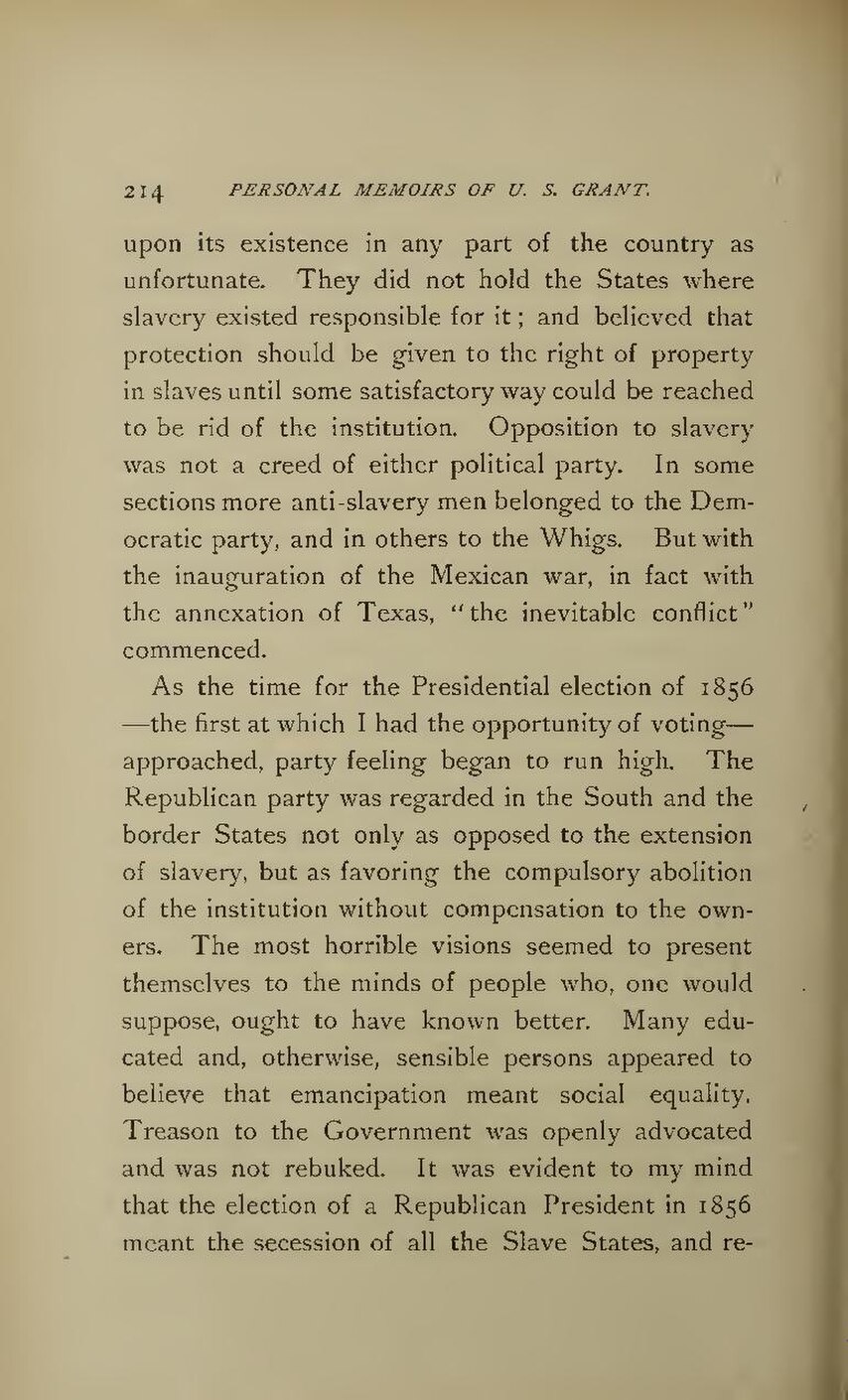upon its existence in any part of the country as unfortunate. They did not hold the States where slavery existed responsible for it; and believed that protection should be given to the right of property in slaves until some satisfactory way could be reached to be rid of the institution. Opposition to slavery was not a creed of either political party. In some sections more anti-slavery men belonged to the Democratic party, and in others to the Whigs. But with the inauguration of the Mexican war, in fact with the annexation of Texas, “the inevitable conflict” commenced.
As the time for the Presidential election of 1856—the first at which I had the opportunity of voting—approached, party feeling began to run high. The Republican party was regarded in the South and the border States not only as opposed to the extension of slavery, but as favoring the compulsory abolition of the institution without compensation to the owners. The most horrible visions seemed to present themselves to the minds of people who, one would suppose, ought to have known better. Many educated and, otherwise, sensible persons appeared to believe that emancipation meant social equality. Treason to the Government was openly advocated and was not rebuked. It was evident to my mind that the election of a Republican President in 1856 meant the secession of all the Slave States, and re-
